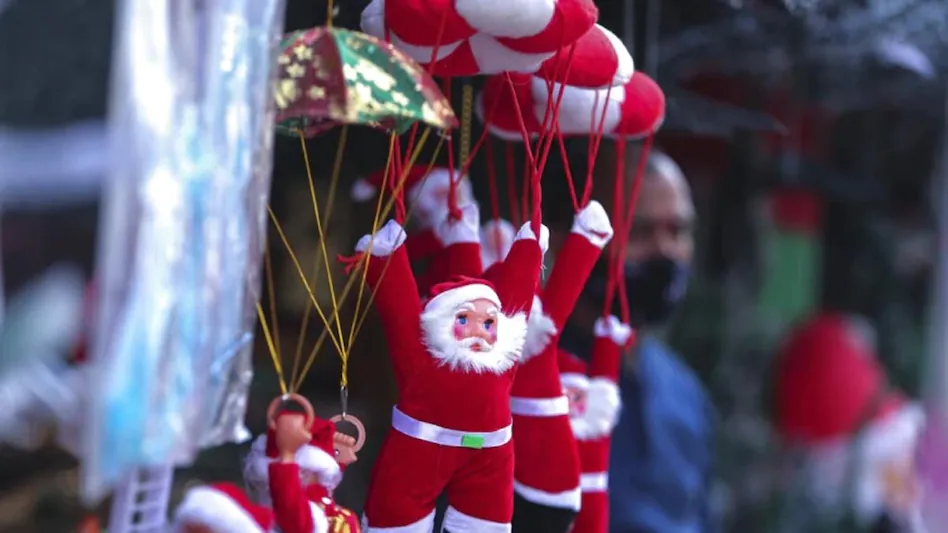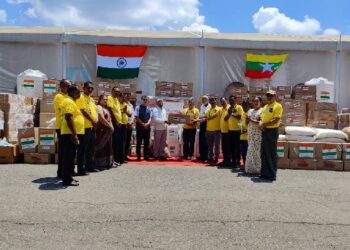![]() By: Shree1new, 25 DEC 2021
By: Shree1new, 25 DEC 2021
New Zealanders celebrated Christmas on Saturday in the warmth of mid-summer with few restrictions, in one of the few countries in the world largely untouched by the Omicron variant of Covid-19.
95%Omicron-free New Zealand celebrates Christmas without curbs of adults in New Zealand have had at least one dose of the vaccine, making it one of the world’s most vaccinated populations. The only Omicron cases that have been found in New Zealand have been safely contained at the border.
As Covid-19 spread around the world over the past two years, New Zealand used its isolation to its advantage. Border controls kept the worst of the virus at bay and by Christmas this year, New Zealand had recorded 50 deaths in a population of 5.5 million.
The delta variant penetrated New Zealand’s defenses in August and its largest city, Auckland, was thrust into lockdown for 188 days. At its peak, the outbreak saw around 220 cases a day. Lately, the daily average has been around 50.
But that success has come at a cost. There were empty chairs at some tables this holiday season because some New Zealanders living and working overseas have not been able to return home due to limits in the country’s managed isolation and quarantine program.
The traditional dining tables of a northern winter — turkey and all the trimmings — are common in New Zealand. But Kiwis also celebrate in an antipodean manner, with barbeques on beaches fringed by the native pohutukawa tree, which blooms only at Christmas.
At New Zealand’s Scott Base in Antarctica, some New Zealanders enjoyed a white Christmas. During summer on the frozen continent, the sun never dips below the horizon and in 24 hours of daylight, the temperature hovers around 0 degrees Celsius (32 degrees Fahrenheit).
Around 200 people pass through the base over the summer season — scientists, support staff, and Defense Force personnel who provide communications and other services. Numbers are lower this year because of the pandemic and all staff traveling to the continent have had to isolate and undergo Covid-19 testing before departure.
“Adding a two-week isolation period and multiple Covid-19 tests to Antarctic pre-deployment is a big commitment for our people heading south this year,” Antarctica New Zealand chief executive Sarah Williams said. “But we want to ensure we’ve done everything we can to keep Antarctica Covid-19 free.”
Most Pacific Island nations whose health systems might have been overwhelmed by Covid-19 outbreaks have largely managed to keep out the virus through strict border controls and high vaccination numbers.
Fiji has an ongoing outbreak and has had almost 700 deaths. About 92% of the adult population is now fully vaccinated, 97.7% have received at least one dose and many in the deeply religious nation will celebrate Christmas at traditional church services and family gatherings.
Health Secretary James Fong, in a Christmas message, urged Fijians to “please celebrate wisely.”
In remote Macuata province, residents of four villages received a special Christmas present: Electricity was connected to their villages for the first time.
Australia celebrated Christmas amid a surge of Covid-19 cases, worse than at any stage of the pandemic, which forced states to reinstate mask mandates and other preventative measures. The Omicron strain is prevalent in some states and is estimated to represent more than 70% of all new cases in Queensland.
In his Christmas message, Prime Minister Scott Morrison referenced Covid-19’s toll on society.
“This pandemic, it continues to buffet us,” Morrison said. “The Omicron variant is just the latest challenge that we have faced. But together, always together and only together, we keep pushing through.”
Summer heat might have discouraged outdoor Christmas feasts in some places. The temperature in Perth in Western Australia was expected to hit 42 Celsius on Saturday, making it the hottest Christmas since records began more than a century ago.
Source:HT







 Finance
Finance






